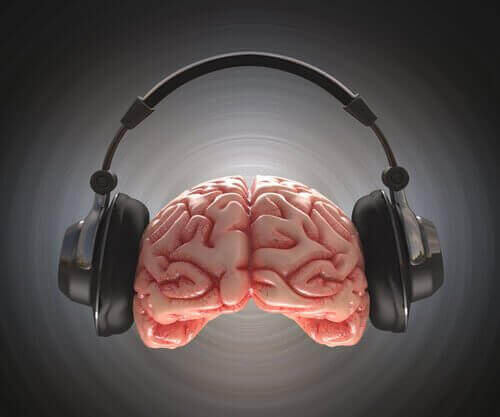The Influence of Music During Adolescence

Listening to music during adolescence is a powerful tool for self-knowledge, as well as for identifying, processing, and expressing various feelings and emotions. Music with lyrics is particularly enriching.
Through rhythm, metaphors, and the messages in song lyrics, adolescents are able to deepen their own feelings and emotions. It also helps them connect with other people and share what they’re interested in, what they like, or what catches their attention, such as the artist’s message, their own thoughts, etc.
Music during adolescence
Studies confirm that music plays an important role in socializing adolescents. Through music taste, they’re able to construct an image, which at the same time they seek to fit within a certain genre.
It’s important to pay attention to the messages from the lyrics, and, when it seems appropriate, reflect on them in a respectful way. An open mind will be very useful for understanding what young people are saying as well as transmitting an idea to them.

In the emotional realm, remember that oftentimes, choosing a type of music can perpetuate a negative mood. That’s why it’s a good idea to try a variety to avoid stagnation as well as promote other points of view.
Aspects that influence musical taste
1. Identity
Above all, music during adolescence helps with identity formation. Often a certain style will set the pattern for the development of a certain type of behavior, attitude, and other preferences, such as clothing style.
2. Youth culture
Music in adolescence allows young people to be part of the current youth culture. Even if what is in style isn’t your taste, knowing what is trendy and why allows you to talk about it and develop a critical attitude, establish limits, etc.
3. Social support and identification
Of course, music during adolescence also allows young people to identify with an artist, group, or specific trend. In this way, they satisfy their need for approval and they have the opportunity to receive social support based on their choices.
4. Expressing emotions
As we mentioned in the beginning, music helps us understand, manage, and express emotions and feelings. This is very positive because it allows adolescents to identify with their emotions.
Both for teenagers who are just listeners and those who are musicians themselves and compose their own pieces, music is a great tool for personal expression.

Some considerations
Many adolescents consider music to be a powerful, necessary force in their lives. However, you should pay attention to certain attitudes and behaviors. In some cases the influence of an artist or genre in particular may not be the healthiest.
Adolescents who are struggling with serious issues may, unknowingly, create a very dangerous vicious cycle by listening to music that intensifies their pain and the other issues they’re experiencing.
Although it’s important to let your kids relax, you also shouldn’t leave them completely unsupervised. Stopping an unhealthy attitude in time can be incredibly positive in the medium to long term.
A study shows that developing music preferences can open a window to the development of certain attitudes and behaviors in teenagers.
In any case, don’t forget that music during adolescence is principally a necessary source of entertainment and social interaction. As a parent, guardian, or friend, you should only introduce them to music that can benefit them and never to that which would harm them.
All cited sources were thoroughly reviewed by our team to ensure their quality, reliability, currency, and validity. The bibliography of this article was considered reliable and of academic or scientific accuracy.
- BAUMANN, V. H. (1960). “Teen-age music preferences”, Journal of Research in Music Education, 8, pp. 75-84.
- HORMIGOS, J. (2004). “La construcción de la identidad juvenil a través de la música”, Revista Española de Sociología, 4, pp. 259-270.
- MEGÍAS, I. y RODRÍGUEZ, E. (2002). Jóvenes entre sonidos: hábitos, gustos y referentes musicales. Madrid, Injuve.
- RICE, F. P. (2000). Adolescencia. Desarrollo, relaciones y cultura. Madrid, Pretince-Hall.
- RODRÍGUEZ, Á. R. (2015). El papel de la música en la construcción de una identidad durante la adolescencia:¿ Dime qué escuchas y te diré quién eres?. Síneris: revista de musicología, (22), 1. https://dialnet.unirioja.es/descarga/articulo/6357469.pdf
This text is provided for informational purposes only and does not replace consultation with a professional. If in doubt, consult your specialist.
